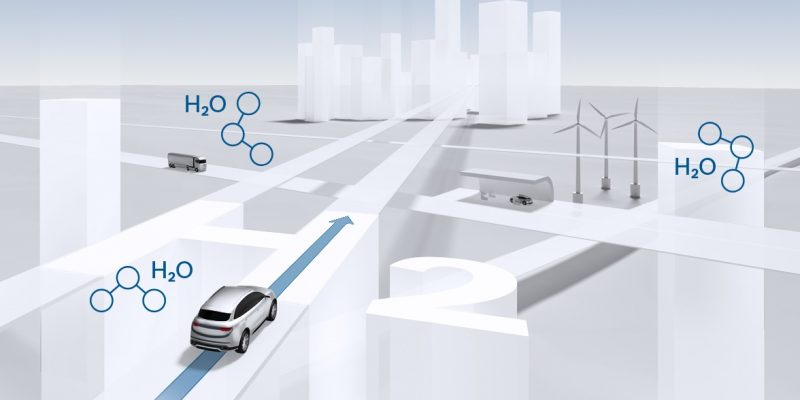Bosch outlines fuel cell’s vital powertrain role
Bosch has nailed its colors to the hydrogen fuel cell mast at least in terms of powertrains for heavy-duty vehicles.
The German automotive supply giant in a statement asks: “But how economical is it to operate heavy-duty trucks with 40-ton payloads over long distances using only battery-electric power?” It points out the serious limitations to BEV adoption across the vehicle fleet, including excess battery weight, long charging times and limited range of today’s technology, rule the powertrains out for use with long-distance heavy-duty truck. It’s, perhaps, appropriate timing by Bosch considering today’s virtual launch of the 16-ton urban delivery truck, the Volta Zero.
That’s why it is now fully promoting hydrogen fuel cell as the obvious zero emission solution for trucking fleets and predict this technology is on the cusp of being able to offer 40-ton trucks a usable working range of 620 miles between refuels. It’s ecosystem concept envisages a loop of sustainable sourced energy to create the fuel and deliver it at the points of service for the fleets.
Bosch lists the seven pivotal reasons it now supports hydrogen as crucial to tomorrow’s transport needs:
Climate neutrality
In a fuel cell, hydrogen reacts with oxygen from the ambient air and this is turned into electricity for use in the powertrain whose only emissions are heat and water. Generating this electricity from renewable hydrogen sources makes the fuel-cell powertrain completely climate-neutral. Fuel cells have a better carbon footprint than BEV powertrains, especially for large, heavy vehicles, if the CO2 emissions for production, operation and disposal are added together.
Potential applications
With energy density, 2.2-lbs of hydrogen contains as much energy as 0.72 gallons (0.87 gallons US) of diesel. To travel 62 miles, a passenger car needs only just 2.2-lbs; a 40-ton truck needs a good 15.4-lbs. As with diesel or gasoline, it takes just a few minutes to fill an empty hydrogen tank and continue the journey. In addition to mobile applications, Bosch is developing fuel-cell stacks for stationary applications with solid-oxide fuel-cell (SOFC) technology. One intended use for them is as small, distributed power stations in cities, data centers, and charge points for electric vehicles.
To read the complete article, visit TU-Automotive.
















